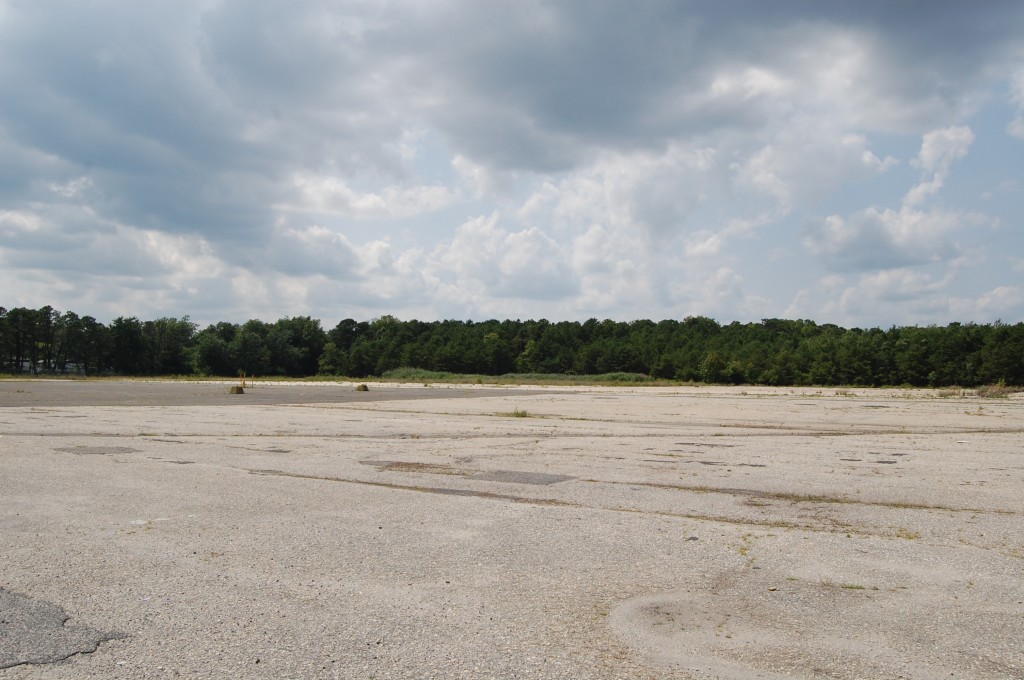Even when you win, you lose.
More than a decade of paying off the $6.1 million it cost to purchase the former Foodtown lot on Route 70, and just as long going without the tax revenue the property would have generated will end up costing Brick taxpayers about $7 million.
The property will now be split in two – one lot fronting Route 70 and one behind it – at a cost of $2.5 million each, for a total of $5 million, Mayor John Ducey said Tuesday night, shy of the approximately $12 million lost on the original $6.1 million sale, debt service on that sale, plus the near decade and-a-half of lost tax revenue.
|
|
The property was originally promised to developer Jack Morris, whose company, M&M Realty Partners, never built anything on the site. No money was exchanged in what would have been a $7.5 million deal, since the structure of the deal required nothing beyond a $100,000 deposit until the township planning board approved construction.
Morris sued after Brick terminated the agreement with him in 2014 after years of inaction. In a settlement, Morris’ M&M will develop the front portion of the plot of land with a mix of retail space and room for one restaurant, said Ducey.
The rear portion will be developed into an indoor sports complex (see separate story) by HFZ Brick LLC, the corporate name being taken on by the developer of other indoor facilities such as the Superdome in Walkwick, Bergen County.
Ducey celebrated the settlement, which was approved unanimously by the township council, as a “historic night in Brick Township.”
“The future of this property has been uncertain since the township purchased it 14 years ago,” Ducey said. “By reaching this agreement, we are finally moving towards the ultimate goal of having this commercial property developed privately and generating tax revenues for the township.”
The mayor, however, had his detractors, who warned against continued dealings with Morris, and suggesting the site should have been left empty until the real estate market improved.
“I don’t know why you trust this guy,” resident Walter Campbell said, of Morris. “He screwed you over so many times. We could’ve worked something out where it wouldn’t have cost the taxpayers a dime.”
“I just think this agreement with both parties is ludicrous,” said resident George Scott. “As a taxpayer, don’t do me any favors. I’d rather you hold to it until the market comes back.”
Scott also blasted a $500,000 credit given to Morris for demolishing the old Foodtown site.
Ducey said that unless the site was developed with residential property – something he is squarely against, and something the council banned from the site by ordinance – the value was going to drop from the original $7.5 million figure.
“I knew that this was the last property the town owns, beside our parks and our town hall, where we could get what the residents want: a recreational facility,” Ducey said.
M&M had previously proposed changing its original agreement with the township (which called for a full service hotel to the built on the property) in favor of a 192-unit mixed condominium and retail development. The council never accepted the plan.
Ducey said had the settlement not been reached, appeals could have taken years, and there was the potential that housing units may have been allowed by a judge.
Purchased in 2003 to avoid the placement of a Home Depot there, the site has been one of the most polarizing issues in Brick for years, with inaction outlasting three mayors before Ducey. In 2011, a sign was placed on the property as Election Day approached, in what was said to be a political ploy by township Republicans to help hold onto power by making it seem as if development was imminent. Democrats took control of the council in that election and have held a majority ever since.

A sign advertising development at the Brick Foodtown site before the 2011 council elections. (File Photo)
Campbell said politics is at work this time, too, as several council seats plus Ducey’s mayoral chair will be on the ballot.
“All you’re trying to do is put something together before election time,” he said. “That’s what it is. Let’s be honest for everybody.”
Township Attorney Kevin Starkey, however, said the agreement is solid and the financials of both Morris as well as the sports complex developer were reviewed by experts and deemed appropriate.
“We asked to see their financials, and they are substantial enough to complete this project,” said Starkey, who described the agreement as something “we’re not fooling around” with.
“There are action items within the contract that have to be met,” he said.
Both Ducey and Starkey said the developers will be responsible for paying for all aspects of the project, including any highway work that could, potentially, be required by the state. The developers will also pick up the township’s own manpower costs that are expended in the project.
Ultimately, Ducey said, the goal was to get the site back in the hands of private owners who would be paying property taxes to the township.
“The township should not be the in the real estate business and the property should never have been purchased,” Ducey said. “It was not pristine land; it was a developed site. The potential costs for the township to develop this site or create a park would create a substantial burden for taxpayers, and that is not something I would do.”

Advertisement

Police, Fire & Courts
Grand Jury Indicts Point Pleasant Man, Once a Fugitive, for Attempted Murder









